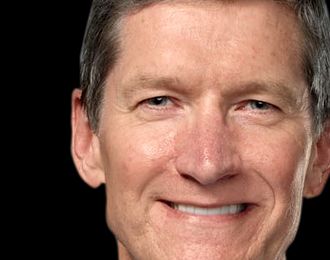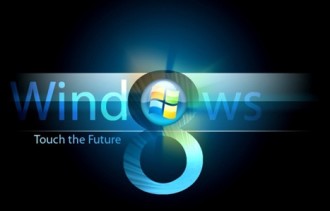Author: Eva Glass
Eva Glass first rose to prominence in The INQUIRER. She continues to work behind the scenes to dig out the best stories.
The updates apply to Windows, to the Macintosh, and to the Linux operating system.
The security bulletin said that Adobe is aware of an exploit used in attacks against older versions of the Flash player.
Affected software includes the Flash Player Desktop Runtime, Flash Player for Linux, Flash Player for Google Chrome, and Flash Player for Internet Explorer 10 and Internet Explorer 11.
You can find details of what you need to do by going to this page. The patch itself won’t be available until next week, it seems.
Apple iWatch runs out of time
 A report claimed that Apple watches, which will launch in the first half of this year, will only have battery lives of about three and a half hours.
A report claimed that Apple watches, which will launch in the first half of this year, will only have battery lives of about three and a half hours.According to 9to5Mac, it has spoken to people familiar with the product who said the chip and the screen will drag its battery life down to a minimum.
Once the watch runs down, you’ll have to find a power socket to recharge it.
The magazine said that Apple decided to use an S1 chip and a top notch screen for the watch, resulting in “significant” power drain.
Apple watches are already in production in the Far East.
9to5mac claimed that Apple wanted to launch the watch last year, but worries over the battery life meant it decided to wait.
Prices for the watch are expected to start at around $350.
US rules China, Taiwan dumping solar panels
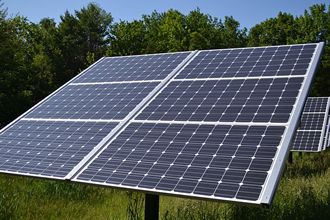 Trade protection organisation the US International Trade Commission (ITC) has confirmed that Chinese and Taiwanese manufacturers of photo voltaic products are dumping them.
Trade protection organisation the US International Trade Commission (ITC) has confirmed that Chinese and Taiwanese manufacturers of photo voltaic products are dumping them.Both anti-dumping and countervailing duties will be levied on imports to the USA from China, while anti-dumping tariffs will be imposed on product from Taiwan.
According to market intelligence firm Trendforce, Chinese PV models will face swingeing minimum tariff of 70 percent.
Taiwanese manufacturers get off much more lightly, with rates in between 12 to 27 percent.
The US ITC acts to prevent home grown manufacturers from being penalised when supplies exceed demand.
Trendforce said that solar cell firms in Taiwan are operating zero margins.
Some Chinese vendors have already relocated their PV manufacturing facilities, and that’s something Taiwanese firms will have to do a similar thing in order to stay afloat.
Hutchison to buy O2
 Consolidation in the UK mobile industry is certain after Hutchison Whampoa said it will buy O2 for £10.25 billion.
Consolidation in the UK mobile industry is certain after Hutchison Whampoa said it will buy O2 for £10.25 billion.O2 is currently owned by Spanish telco Telefonica.
Hutchison already owns the UK Three network.
O2 is the second biggest mobile operator in the UK, with around 22 million subscribers.
Just a few weeks ago we reported that BT entered talks with EE, with a view to acquiring it.
BT then ruled out buying O2. It is still in talks with EE over acquiring that business, with a view to becoming a dominant player in the UK market.
Hutchison more or less started off the mobile phone business in the UK with the launch of Orange.
Apple CEO gets wage rise
Tim Cook, a Brit, now only earns $2 million a year, up from a measly $1.4 million before his salary was raised in February 2014.
If you count Cook’s total remuneration it amounts to $9.2 million a year.
Apple also raised other executives’ salary by over 14 percent, the company said.
The executives got their wage increased because Apple compared their salaries to other peoples’ salaries in comparable industries.
If executives at Apple hit their targets, they can earn bonuses worth ip to 400 percent of their salary.
Cook is judged by the company to have hit his targets since he became CEO in August 2011.
Solid state drive prices to topple
Digitimes, quoting the technology manager of memory company Apacer, is estimating that prices for, example, of 256GB SSDs will tumble to as little as $70 in the second half of this year.
And a 128GB SSD could cost as little as $40 by year end, according to manager CK Chang.
He reckons that the price drops could well stimulate a far greater demand for the storage devices.
One of the reasons the prices are falling is because process technologies for the type of NAND flash memory used is migrating to 14 nanometre, 16 nanometre or 16 nanometre processes.
That means manufacturers get more NAND memory from a single silicon wafer.
Speed limits of quantum computing found
 Scientists at the University of California, Berkeley, claim to have proved a relationship between energy and time that lets people calculate the “quantum speed limit”.
Scientists at the University of California, Berkeley, claim to have proved a relationship between energy and time that lets people calculate the “quantum speed limit”.The scientists said that while the energy-time uncertainty relationship is the flip side of the Heisenberg uncertainty principle.
K Birgitta Whaley, director of the Quantum Unit at Berkeley, said: “This is the first time the energy-time uncertainty principle has been put on a rigorous basis – our arguments don’t appeal to experiment but come directly from the structure of quantum mechanics.”
She said the derivations has implications for any measurement involving time, and certainly does for quantum computing.
Graduate student Ty Volkoff, said the uncertainty principle limits how precise your clocks can be. “In a quantum computer, it limits how fast you can go from one state to the other, so it puts limits on the clock speed of your computer.”
Sky to auto-block web pornography
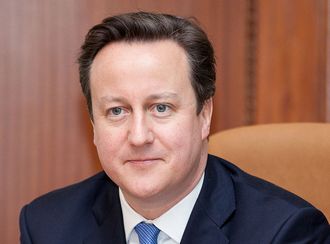 Broadband supplied by Sky will automatically stop customers from seeing pornography unless people actively opt out.
Broadband supplied by Sky will automatically stop customers from seeing pornography unless people actively opt out.In a letter to its customers, it said that the Broadband Shield feature will be automatically enabled, unless people choose to change the settings.
Sky is the first broadband company in the UK to implement the policy.
UK prime minister David Cameron said two years ago he wanted mandatory online filtering of web sites to protect children.
Director of Sky Lyssa McGowan said the internet isn’t universally suitable for children.
In a blog on the Sky site, she wrote that it’s acting in the interests of security and online safety.
When dodgy sites are encountered by customers, a message will flash up on the screen and people will only be able to unblock specific pages by logging in and changing their settings.
Blackberry recruits politicos for market share
 Blackberry is fighting back against its competitors by asking politicians to step into the apps business.
Blackberry is fighting back against its competitors by asking politicians to step into the apps business.The company’s CEO John Chen has written to members of the US Congress and is trying to persuade them to force competitors to make their apps available for his company’s own products.
The Canadian company has made its unusual appeal under the banner of net neutrality – a contentious matter in the United States.
Chen wants the politicians to force firms using Apple or Android operations to make their services available to Blackberry users.
Chen believes that the dominance of Apple and Samsung in the mobile market “has created a two tiered wireless broadband” system.
People using iPhones or Android devices can access more content than people using other operating systems, Chen claimed.
“These are precisely the sort of discriminatory practices that neutrality advocates have criticised at the carrier level,” he wrote on his company’s blog.
Dell, HP fight back on server prices
 A price war has developed on the server front after multinationals faced competition from original design manufacturers (ODMs) that make the machines.
A price war has developed on the server front after multinationals faced competition from original design manufacturers (ODMs) that make the machines.Over the last year or so, companies such as Quanta Computer have undercut Dell and HP and won big orders from the likes of Google and Amazon.
Digitimes reports that HP is fighting back by striking a deal with giant Taiwanese combo Foxconn to offer cut price X86 servers to customers.
Meanwhile, Dell has struck a deal with Microsoft to offer cloud based systems in a bid to sell private cloud data centres.
But while the news might be good for enterprises looking to pay less for their X86 servers, it can’t be good news for margins.
And Intel, which supplies the majority of microprocessors that power servers, must be worrying about an effect it may have on its margins.
Intelligent keyboard invented
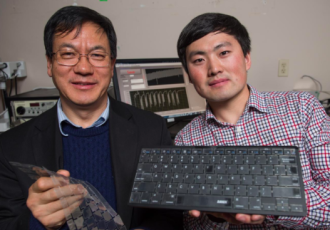 Scientists at Georgia Tech claim to have come up with an “intelligent” keyboard they believe will change the face of computing.
Scientists at Georgia Tech claim to have come up with an “intelligent” keyboard they believe will change the face of computing.The self powered non-mechanical keyboard, they say, will give better security.
It generates electricity when a person’s fingertips contact the multi-layer materials that make up the device.
Zhong Lin Wang, a professor at Georgia Tech, said: “Every punch of the keys produces a complex electrical signal that can be recorded and analysed.”
The scientists believe the keyboard can also generate enough juice to charge portable devices or to turn a keyboard into a wireless keyboard.
Wang said: “This has the potential to be a new means for identifying users. With this system, a compromised password would not allow a cyber criminal onto the computer. The way each person types even a few words is individual and unique.”
Government in school technology push
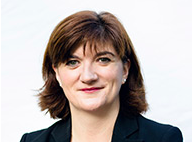 The coalition government has used a teachers’ conference in London to encourage primary schools to up their technology ante.
The coalition government has used a teachers’ conference in London to encourage primary schools to up their technology ante.Speaking at the BETT conference in London, education secretary Nicky Morgan will tell people that Google and O2 will help the move by supporting a £3.6 million initiative.
She thinks that schools should be plugged into technology firms because a lot of jobs will end up being in the tech sector.
Her department, the Department for Education, is putting up £3.6 billion in funds to develop computing skills in primaries.
She wants children in primary schools to learn about coding. Meanwhile, Oxford Brookes University will develop an online course for teachers in primary schools.
Other tech firms at the BETT conference include Intel, which is launching an education content management portal aimed at teachers. Intel wants teachers to help develop the so-called “three Rs” of reading, (w)riting, and (a)rithmetic.
Microsoft must recover from Windows 8 debacle
But it faces uphill challenges, according to Ovum.
Richard Edward, principal analyst of enterprise mobility and productivity said a number of challenges face the software giant.
He said that chief information officers (CIOs) and corporate IT managers will monitor the event closely.
“There could also be announcements that will materially affect business user computing strategies, as Microsoft and its Windows hardware partners try to reboot the PC industry and gain a foothold in smartphone and tablet markets,” he said.
Further, he said Microsoft: “is no stranger to debacles where Windows is concerned – remember Microsoft Vista – but the effort, resources and time required to extricate the company from each predicament increases with every occurrence.”
Edward said that getting Windows 7 users to upgrade to Windows 10 will be hard because there are two distinct markets to engage – business users and home users.
Ovum thinks businesses will carry on deploying Windows 7 for now. Extended support will continue until January 2020, he said, “so there is compelling reasons for organisations to make the upgrade”.
IBM revenues, profits fall
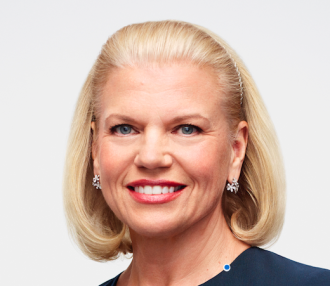 Major services company IBM turned in its financial fourth quarter figures last night, and the news wasn’t all that good.
Major services company IBM turned in its financial fourth quarter figures last night, and the news wasn’t all that good.IBM made net profit in its fourth quarter of $5.5 billion, compared to $6.2 billion in the same quarter of 2013. That’s a fall of 11 percent.
Revenues in the fourth quarter amounted to $24.1 billion, down 12 percent compared to the year before.
However, if this figure includes divestments including customer care outsourcing and System x businesses, as well as currency fluctuations, IBM calculus the decrease is two percent.
Gini Rometty, IBM chairman and CEO, claimed her company had made significant progress in changing its business to higher value services.
Global services fell by eight percent, while technology services also fell by eight percent. Business services revenues also fell by eight percent. Revenues from its software fell seven percent.
Samsung, Apple, take top semi spots
Together, they bought $57.9 billion worth of chips last year, up by $3.9 billion in 2013, according to Gartner.
In terms of the total market for semiconductor, both companies’ accounted for 17 percent of the total market.
Gartner said the two firms have been top of the semiconductor consumption market for four years in a row.
That, said analyst Masatsune Yamajo, means decisions they make “have considerable technology and pricing implications for the whole semiconductor industry”.
Samsung was still top buyer but its decision to withdraw from some parts of the PC market as well as losing market share to other vendors meant its growth rate wasn’t as great as in the past.
Gartner estimates that the top 10 companies bought $125.6 billion of semiconductors, accounting for 36.4 percent of the whole market in 2014.
After Samsung and Apple, the remaining eight top ten buyers were HP, Lenovo, Dell, Sony, Huawei, Cisco, LG Electronics and Toshiba.
The entire semiconductor market worldwide amounted to $339.9 billions last year.

